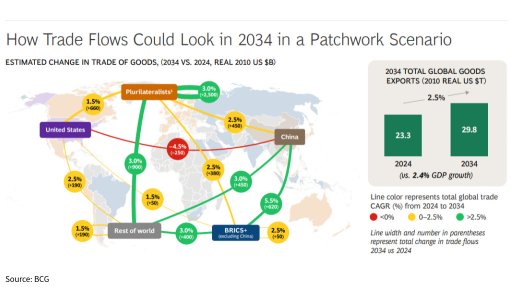Splitting Eskom into three
On February 7, 2019, President Ramaphosa announced in his State of the Nation Address that Eskom would be remodelled and split into entities dealing with generation, transmission and distribution. It was noted that Eskom was in a deep financial and operational crisis, with a debt burden of R419-billion, which it was unable to service from the revenue it earned, and that it was straining to keep the lights on, with multiple breakdowns due to neglected maintenance.
So, now, 16 months later, the situation is this: Eskom has not been split into three and it will take two years to achieve this. Maintenance has greatly improved and Eskom CEO Andre de Ruyter says debt will drop to R200-billion. There are few blackouts.
Different organisations see the unbundling requirements in different ways. The Organisation Undoing Tax Abuse (Outa) stated: “Outa believes that a separation of control over the two arms of electricity generation and transmission will break Eskom’s stranglehold over the grid (transmission), thereby ensuring that open competition for energy generation at the lowest cost of production will reach the consumer, assuming political meddling is minimised, which in itself may be a separate challenge. In short, this challenge is to reduce the costs of energy to the consumer.”
The Alternative Information and Development Centre (AIDC) has another view: “There can be no doubt that increasing operational efficiencies and effectiveness must be an important part of transforming Eskom. But there is no clear motivation given for why this has to involve unbundling. Rather, we need a solution that doesn’t leave workers bearing the brunt of the transition by cutting jobs, increasing tariffs and making electricity unaffordable, as unbundling and privatisation will. The starting point for transforming Eskom should be giving Eskom greater responsibility for renewable energy, rather than liberalising the electricity sector.”
The reasons for unbundling were not complex, and neither were they palatable: Eskom workers were stealing coal from the power stations blind, in some cases, from the security guard to the GM. Maintenance contracts were awarded to shelf companies that had no ability to do real maintenance, and Eskom staff supervising these contracts were signing off for work that was done very poorly or not done at all. Eskom had (and still has) too many staff at all levels. Eskom allegedly gave out contracts worth billions to people such as an Eskom CEO’s stepdaughter’s firm, and various other firms. In short, the staff were stealing from their employer. At the time, 16 months ago, the transmission and distribution sections of Eskom were more or less not corrupt but suffered the debt burden of increasing corruption. So, unbundle them and fix the generation division.
Now, much of Eskom corruption has been undone. Staff have resigned rather than face criminal charges. Maintenance is good. Some flaws with the Medupi power station have been fixed. Is unbundling now necessary? In my view, absolutely not. In De Ruyter, we have an honest person who is doing an honest job. In South Africa these days, that is a rare thing. On the other hand, it is fairly difficult to see how the transmission or distribution divisions of Eskom could become corrupt. There is no fuel to steal. If somebody signs off on badly done work, then the equipment will fail. Further, the transmission and distribution divisions have a deeply embedded ethos of not stealing and cheating. Don’t unbundle. Keep your eggs in one basket and watch that basket.
What about ADIC’s contention that “the starting point for transforming Eskom should be giving Eskom greater responsibility for renewable energy, rather than liberalising the electricity sector”? The fact of the matter is that, yes, costs of renewable energy are reducing, but the cost of gas turbines and storage batteries is not. For a reliable supply, you have to have one battery and gas turbine of power equal to the renewable energy plant. So, costs are not that much less. But we will see what will happen.
Article Enquiry
Email Article
Save Article
Feedback
To advertise email advertising@creamermedia.co.za or click here
Comments
Press Office
Announcements
What's On
Subscribe to improve your user experience...
Option 1 (equivalent of R125 a month):
Receive a weekly copy of Creamer Media's Engineering News & Mining Weekly magazine
(print copy for those in South Africa and e-magazine for those outside of South Africa)
Receive daily email newsletters
Access to full search results
Access archive of magazine back copies
Access to Projects in Progress
Access to ONE Research Report of your choice in PDF format
Option 2 (equivalent of R375 a month):
All benefits from Option 1
PLUS
Access to Creamer Media's Research Channel Africa for ALL Research Reports, in PDF format, on various industrial and mining sectors
including Electricity; Water; Energy Transition; Hydrogen; Roads, Rail and Ports; Coal; Gold; Platinum; Battery Metals; etc.
Already a subscriber?
Forgotten your password?
Receive weekly copy of Creamer Media's Engineering News & Mining Weekly magazine (print copy for those in South Africa and e-magazine for those outside of South Africa)
➕
Recieve daily email newsletters
➕
Access to full search results
➕
Access archive of magazine back copies
➕
Access to Projects in Progress
➕
Access to ONE Research Report of your choice in PDF format
RESEARCH CHANNEL AFRICA
R4500 (equivalent of R375 a month)
SUBSCRIBEAll benefits from Option 1
➕
Access to Creamer Media's Research Channel Africa for ALL Research Reports on various industrial and mining sectors, in PDF format, including on:
Electricity
➕
Water
➕
Energy Transition
➕
Hydrogen
➕
Roads, Rail and Ports
➕
Coal
➕
Gold
➕
Platinum
➕
Battery Metals
➕
etc.
Receive all benefits from Option 1 or Option 2 delivered to numerous people at your company
➕
Multiple User names and Passwords for simultaneous log-ins
➕
Intranet integration access to all in your organisation

















